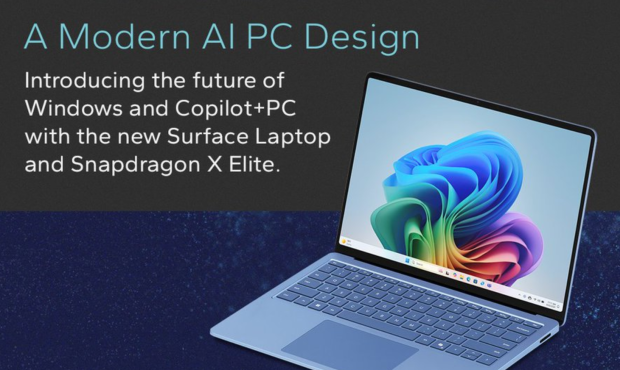Microsoft recently unveiled a suite of new PCs integrated with its new artificial intelligence, Copilot+. The first batch of new PCs are coming in the form of AI laptops, and the ones available are powered by Qualcomm's Snapdragon X Elite SoC. It's expected Intel and AMD will release their own versions later this year.
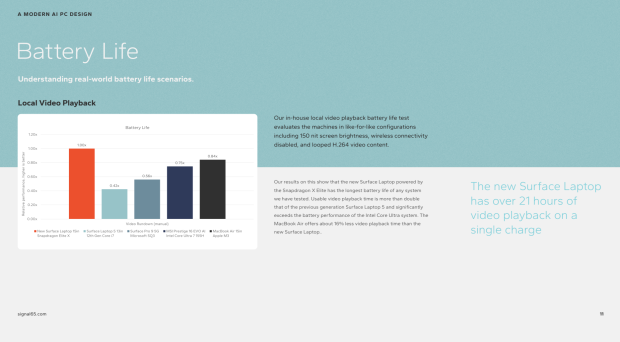
The X Elite was recently put up against Apple's MacBook Air M3 by benchmarking and analysis company Signal64. Ryan Shrout, a former Intel employee and President & GM of Signal65 headed the report, which was commissioned by Microsoft. A common move by companies that want to legitimize the claims they are making about their products.
The report found the X Elite outperformed Apple's M3 silicon in a variety of different tests, with the X Elite-powered Surface Laptop surviving over 21 hours in a local video playback test, which is 15% longer than a MacBook Air M3 and twice as long as the Surface Pro 9. Notably, the X Elite did lose to the M3 silicon in single-core performance in both Cinebench and Geekbench by approximately 15%. However, in multi-core performance, the X Elite was found to be more than 30% faster than Apple's M3.
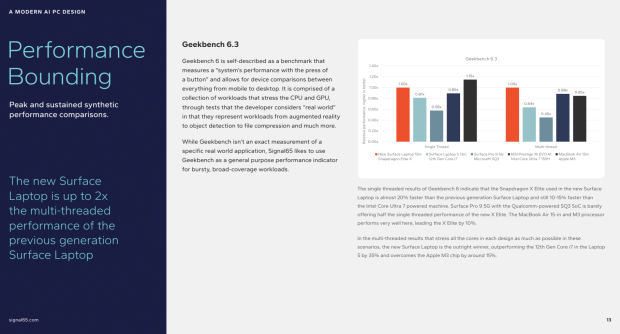
Further multi-core testing found the X Elite to be twice as fast as 12th-gen Intel Core i7 chip and approximately 5% faster than Intel's latest Core Ultra 7 155H. Moving onto Handbrake encoding testing, where the X Elite beat the M3 by nearly 25%.
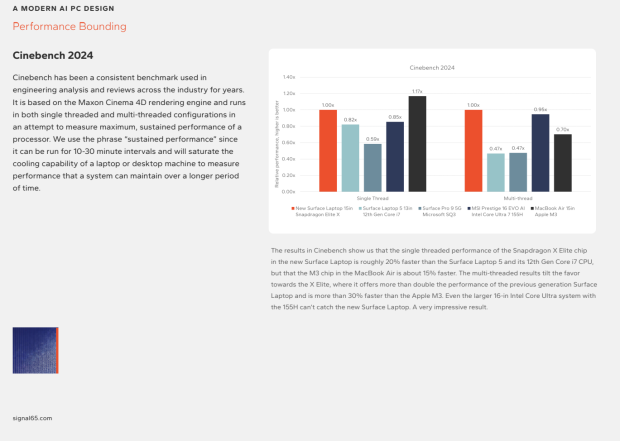
However, it isn't all sunshine and rainbows for the X Elite, as Shrout tested Microsoft's new Prism emulation layer against laptops running apps natively. Shrout found the Intel Core Ultra 7 155H was around 46% faster, while the Apple M3 was 17% faster than the X Elite.
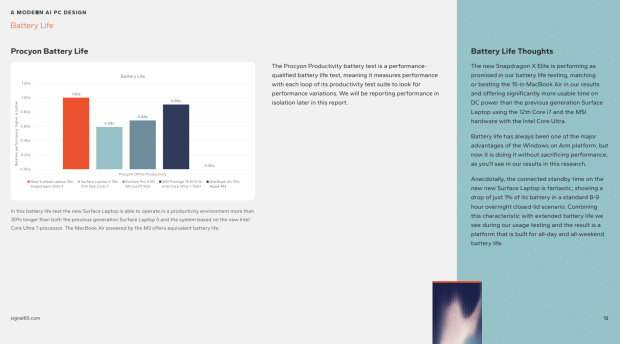
These results highlight the importance of emulated performance versus native performance in applications, and performance appears to vary from app to app. The X Elite was able to match the performance of the Core Ultra 7 155H in Lightroom Classic when the Intel chip was running the application natively.
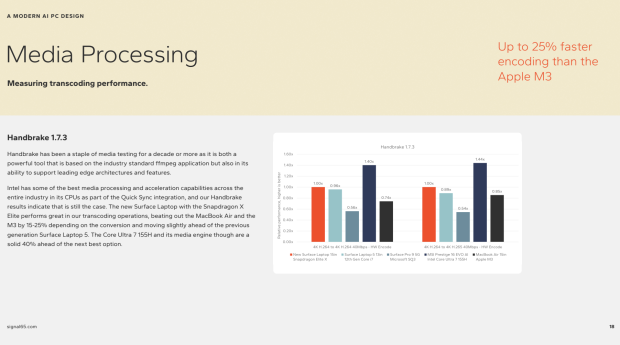
Overall, this indicates Microsoft has some work to do with its Prism emulation tool, which will come in the form of future updates down the road.
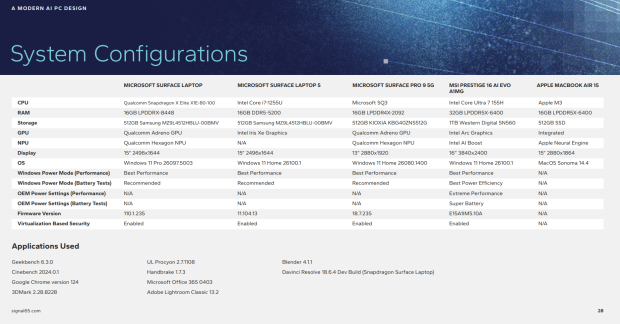
As for other Copilot+ news, Microsoft has landed itself in some hot water with its Windows Recall feature, as it enables users to travel back to a specific time on their PC - picture web browsing history but at a Windows level - but at the cost of Recall taking a screenshot of the users desktop.

